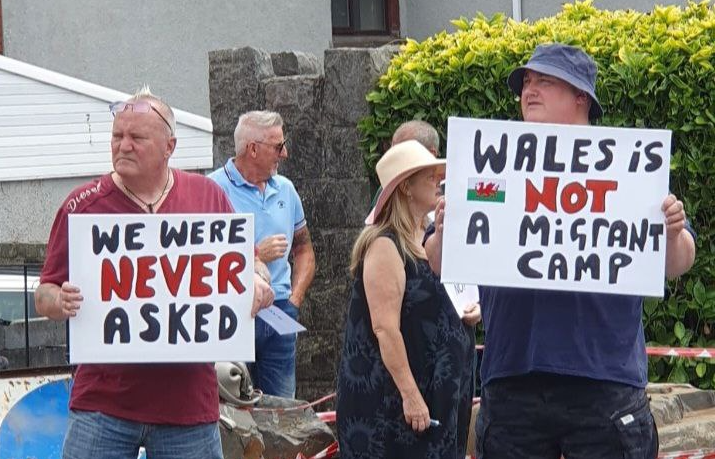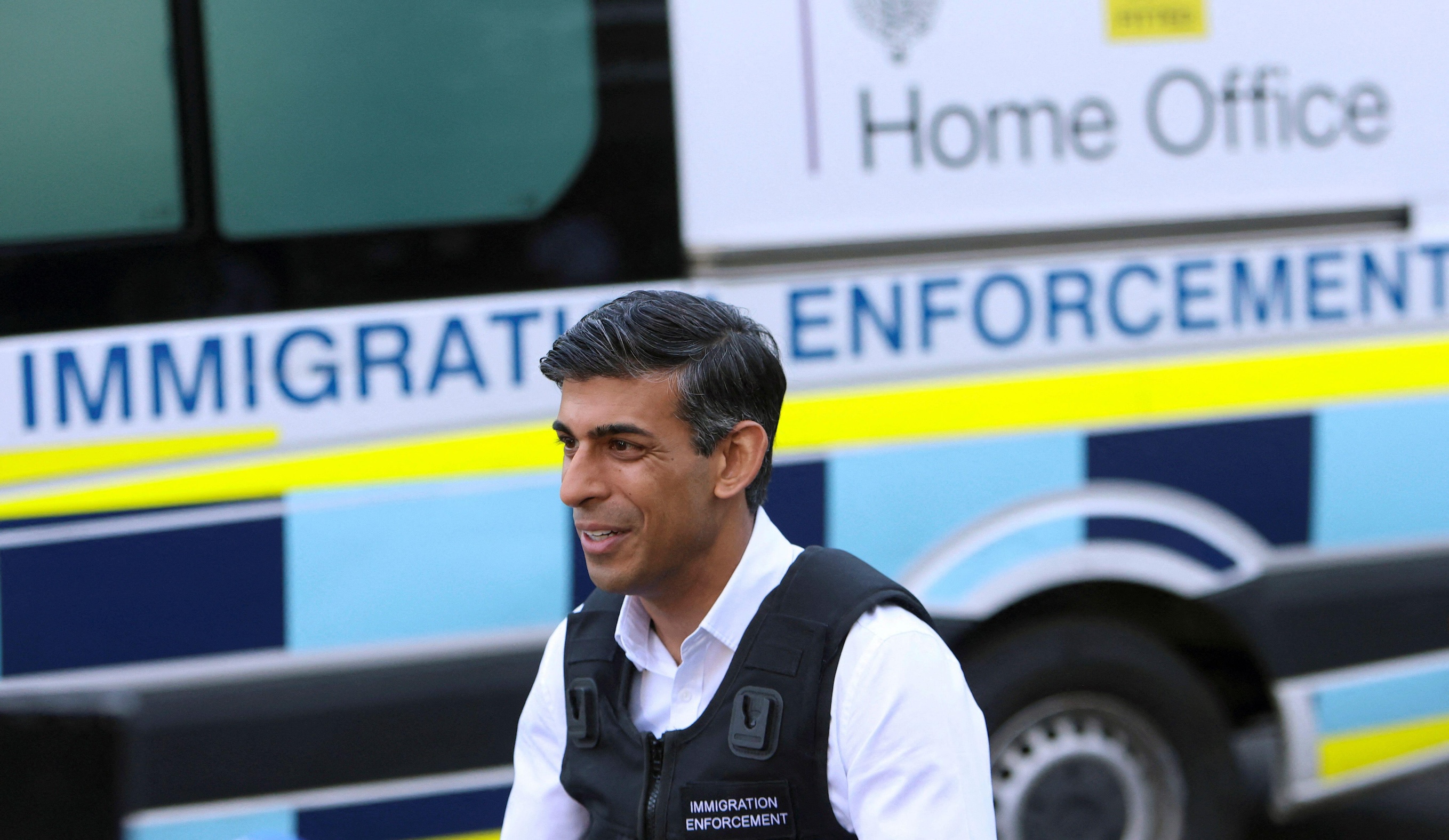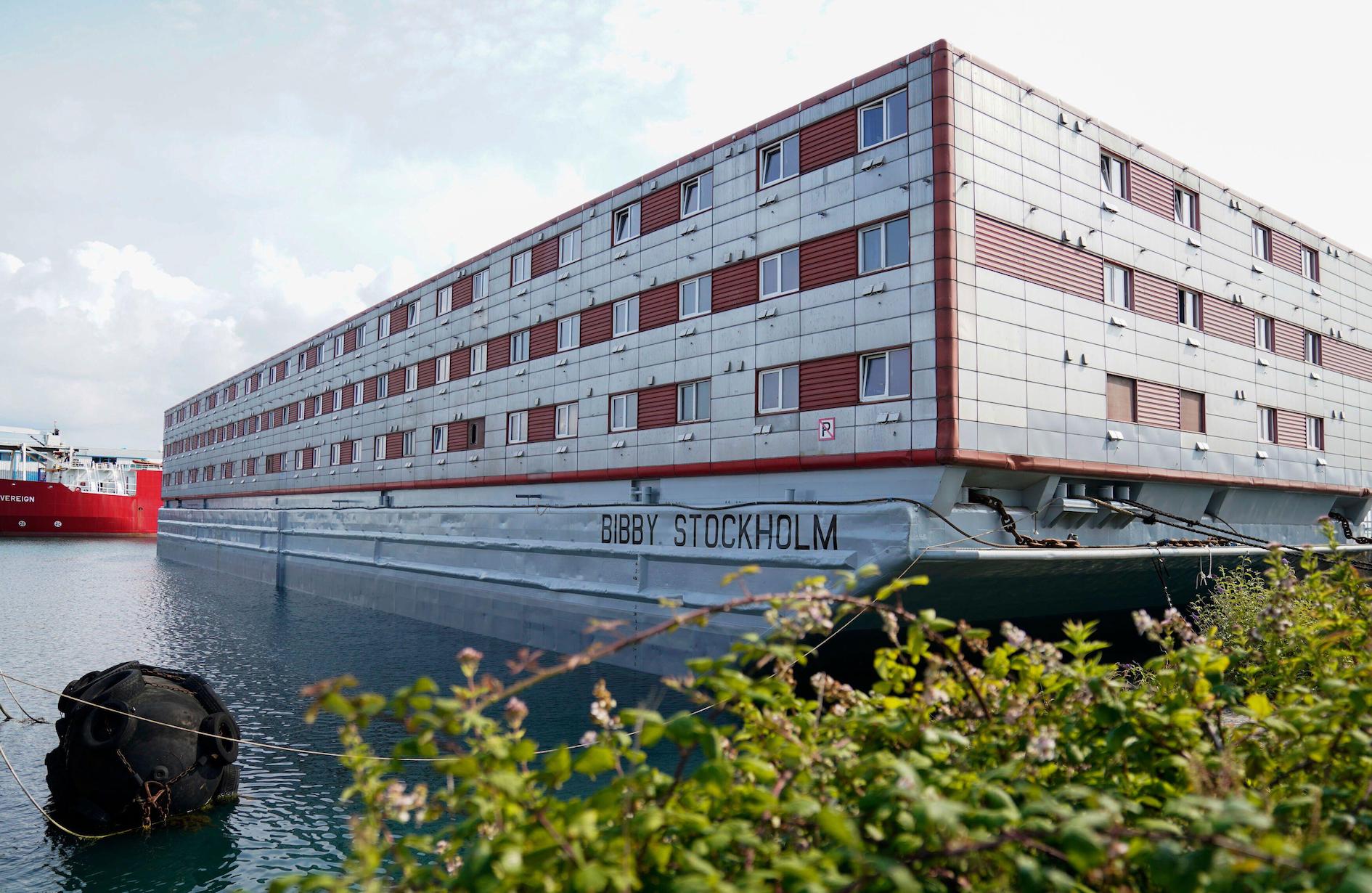"They're taunting me": Home Office asylum interviews are retraumatising rape survivors
Campaigners worry women seeking asylum are being harmed and wrongly refused claims for protection.
Content warning: mentions of rape and sexual violence.
Women seeking asylum after experiencing rape are reporting further traumatisation by the Home Office’s interviewing process. At these meetings, women recall being forced to rehash the sexual violence they have experienced to interviewers they believe to be insensitive to their trauma. Asylum seekers who miss their interviews risk having their cases withdrawn and face the threat of being sent back to the danger they escaped.
When people apply for asylum in the UK, they are expected to attend two interviews. The first is the screening interview, which gathers basic information. The next is the substantive interview, which requires asylum seekers to discuss their reasons for claiming asylum.
The interviews, particularly the second one, are crucial components to evidence whether or not the Home Office approves someone for refugee status in the UK. But for women who have experienced sexual violence, this process can be terrifying and re-traumatising.
According to Emily Burnham, a casework coordinator in the asylum team at Women Against Rape, Home Office policy is meant to protect victims of rape and torture from re-traumatisation by allowing them to submit written evidence, such as a psychological report. However, says Burnham, to benefit from this policy, survivors need a legal aid lawyer with the capacity and funding to do this work. Due to legal aid underfunding, most victims are forced to attend the interview alone, despite the risk of being re-traumatised.
In late April, Melody*, a rape survivor from Namibia, received a letter from the Home Office instructing her to come in for an interview to proceed with her asylum claim. “We have provided multiple opportunities for you to explain your reasons for claiming asylum,” the letter read. It was the fourth Melody had received since applying for asylum in December 2022. She was unable to attend previous interviews, in fear of reliving her trauma.
The Home Office said this was Melody’s “final opportunity” to tell them why she needed protection in the UK. Having only just secured a solicitor, Melody doesn’t feel ready to present her case yet.
Melody made her initial asylum claim as a survivor of repeated rape by a powerful relative. When she reported this abuse to police in Namibia, she was then raped by a police officer. “To talk about the details of what happened to me is very difficult. I couldn’t report it at my screening interview. My GP has written to say I need more time.” she tells The Lead.
“For some, it is the reputation of the Home Office interviews and interviewers as being there to catch people out – based on what they have heard through their friends or community members,” Carenza Arnold from Women for Refugee Women tells The Lead. “For others, the lack of mental health support means they are terrified to disclose extremely personal and traumatic experiences to what is essentially a stranger.”
Most women applying for asylum, except for a select few from ‘high acceptance rate’ countries like Afghanistan, Eritrea, Libya, Iraq, Iran, Sudan, Syria, and Yemen, are required to attend interviews. These interviews are typically conducted by Home Office employees who, according to Jo Wilding, a lecturer in migration law at the University of Sussex, are trained but not trauma-informed. “It’s possible to ask for a female or male interviewer, although there’s no guarantee,” she tells The Lead.
Treated with contempt
Angela* remembered how traumatised she was at her screening interview with a female officer when she arrived at Heathrow last year, after fleeing a forced marriage and domestic violence from a powerful man in Namibia.
“She was so rude,” she tells The Lead. “She asked for my email, and I said I didn’t remember my email. She asked if I was stupid.” Angela says the woman treated her “with contempt”, mocking her facial expressions and words, the broken state of Angela’s phone, the smell of her clothes, and her tattered Bible.
Worst of all, it came to light after the interview that mistakes had been made on Angela’s paperwork. The officer had inaccurately recorded the names, ages, and whereabouts of Angela’s children. She had also wrongly recorded that Angela had never approached the police in her own country – details that could go on to affect her asylum decision. “I can’t even sleep when I remember that time,” she says through tears.
Screening interviews might happen at the airport immediately after arrival, or at the screening unit in Croydon, south London. “It’s literally people queuing out the door, queuing inside, waiting,” says Christel Querton, an academic researcher at UWE Bristol, who previously represented asylum seekers in court. “They may show up to a booth with a transparent screen in front of them. It is supposed to be short so the Home Office can decide what the claim is and what they need in terms of support.” Quertion said the environment lacks privacy and doesn’t lend itself to sharing freely why a person is claiming asylum, especially if it has to do with sexual violence. Some asylum seekers have their children present, which hinders sharing openly, as childcare is unavailable.
If any details from the screening interview conflict with the following substantive interview, there could be grounds for a denied asylum claim, something Angela is concerned about, given the mistakes made by the woman who interviewed her.
Another asylum seeker, Sylvia*, remembers her screening interview like it was yesterday. Fleeing the people who abused and raped her in Nigeria, Sylvia, came to the UK with her two young daughters and claimed asylum in May 2021. The Home Office set her screening interview for later in the month. Sylvia waited several hours in a queue with her two daughters, petrified, not knowing what to expect.
“It was noisy,” the 47-year-old tells The Lead, explaining that the interview took place in a room with a partial divider and other people talking and moving around. “I was unable to hear some of the questions. People were making noise behind me, and I was asking them to stop so I could hear properly.”
“I told them I left my country because I was being persecuted because of my religion,” she says. The immigration officer, a woman, didn’t want her to go into any more detail. Sylvia thought the woman seemed angry.
It was 10 p.m. before Sylvia left with her two girls. The Home Office told Sylvia the next step would be her substantive interview, during which they would ask in detail about her reasons for claiming asylum. The wait for that interview took two years, during which time Sylvia and her daughters were left in limbo. And while she found the initial screening interview nerve-wracking, it’s the substantive interview that still keeps Sylvia awake at night.
“I was confused and had a lot of trauma that was unsolved,” she says, describing why the thought of recounting her past terrified her.
In October 2023, Sylvia received a letter asking her to attend her substantive interview. Not yet able to secure a capable lawyer to prepare and represent her, Sylvia asked for her interview to be delayed, feeling too “traumatised” to “bring all these things out” alone.
“But they just kept sending appointment letters,” Sylvia said, counting six appointment letters she’s received since October. “It’s like they are toying with my mental health – taunting me, bullying me.” Although Syliva is being supported by Women Against Rape, she’s nervous that by not attending, her case could be withdrawn. “I’ve got two girls,” she adds. “Their life depends on me.”
Little access to legal aid
“The threat of withdrawal of an asylum claim [when missing an interview] is a very serious issue for victims and it adds to their stress when deciding whether to go for the interview if the Home Office hasn’t agreed to postpone in advance – as frequently happens,” Emily Burnham tells The Lead. “Women have contacted us late at night, terrified about what will happen to them, feeling suicidal.” Women for Refugee Women have also noticed a worrying trend of women missing their interviews because the correspondence about their interview date was never received from the Home Office.
Although attending a substantive interview is – according to Christel Querton – a chance to “put forward their evidence”, it can be debilitating and lead to re-traumatisation. “The Home Office has several policy guidance documents for their staff, including on how to conduct the interview and assess credibility, which seem pretty good standards, but the problem is implementation and training,” she says.
In a previous report on gender analysis of UK asylum law, policy and practice, Querton wrote that whilst policy documents “recognise the impact of trauma on disclosure and the need for an environment of trust”, the majority of women who participated in her research said that they found the substantive interview the most traumatic element of the asylum procedure. “This has a knock-on effect on the assessment of credibility, which was found to be at the core of the decision to refuse women’s asylum claims.”
"Most victims we work with have endured years of abuse and from multiple perpetrators, which means their experiences are complex as well as extremely painful to disclose.”
– Emily Burnham, Women Against Rape.
After having been raped in a prison by uniformed guards in the Democratic Republic of the Congo, Cassandra*, sought asylum in the UK. She attended her substantive interview in 2004, only three months after her screening interview. “I couldn’t speak any English,” Cassandra, now in her early 40s, tells The Lead. “It was very scary. I was on my own. I remember seeing lots of people in uniforms. I was so confused about what I had to do there. I just knew it was important.” She remembers her body temperature dropping as she entered the interview room.
“They were asking me so many questions,” she recalls. “They were repeating the questions in different ways. I didn’t know how to answer. My brain was so tired. I just wanted to finish the questions and be free.” Throughout the interview, Cassandra found it difficult to remember details of her experience. “It was a part of my life that I don’t want to remember,” she says.
Her translator didn’t speak her dialect, so she could hardly understand what was being asked of her, and she wasn’t given any breaks. A few months after the interview, she received a letter informing her that her asylum case had been refused.
“They said I was vague,” she says, defending herself by explaining how trauma and the conditions of the interview impacted her memory. For many women like Cassandra who are grappling with trauma, memories of specific details are often blurry, leading to a “vague” interview.
Rehashing her trauma had done nothing for her initial claim, but over the last 20 years, Cassandra has been building up her case. Only last year did she receive the right to remain in the UK under Article 8, rather than as a refugee, because she had established a “private life” in the UK. She’s appealing for refugee status now.
“It is not necessary for the Home Office to subject women to a substantive interview where they are expected to describe in detail harrowing experiences of sexual violence,” Burnham says. “There is a wide body of evidence that shows how difficult it is to speak about rape and other experiences of sexual violence. Most victims we work with have endured years of abuse and from multiple perpetrators, which means their experiences are complex as well as extremely painful to disclose.”
Burnham said it gets worse – some women she works with are being called in for more than one substantive interview.
“It’s unclear why the Home Office needs to carry out additional interviews rather than asking for any clarifications in writing,” Burnham says. “Doubling interviews may well be a deliberate policy and part of the hostile, sexist and racist environment whereby the Home Office tries every trick to see if they can catch women out and use any discrepancies to refuse status.”
A spokesperson for the Home Office told The Lead:
“We take the welfare of those in our care extremely seriously and at every stage in the asylum process – from initial arrival, to any potential relocations – our approach is to ensure that the needs and vulnerabilities of asylum seekers are identified and considered including those related to mental health and trauma.
“All staff are fully trained to identify and support the most vulnerable and due consideration is given when asylum seekers may struggle to disclose their experiences.”
What survivors need
Emily Burnham would like to see women who have experienced sexual trauma be given ample time to acquire legal advice and appropriate support to write detailed statements about their cases, with legal aid funding for psychological assessments, and expert reports about the situation in their country of origin. “This enables the Home Office to consider their cases with the evidence they need to make a fair decision without re-traumatising victims through unnecessary interviews,” she explains.
If an interview must take place, Jo Wilding would like to see a “trauma-informed specialist interviewing in a place that feels safe for the interviewee, videoed to be able to make an asylum decision and also to serve as evidence if the case goes to appeal.” She believes the interview should be consistent with the way women are interviewed about criminal trials on sexual violence cases, where trauma-informed specialists are present.
Although Carenza Arnold “recognises and appreciates the importance of asylum interviews,” she urges the Home Office to overhaul the asylum determination process.
“Until the Home Office can adhere to its own guidance and put the appropriate procedures in place to protect survivors of gender-based and sexual violence, and minimise the risk of further traumatisation and harm, it is likely that interview practices and procedures will continue to harm women and wrongly refuse grants for protection.”
*name has been changed for anonymity.
Women for Refugee Women support women who have fled persecution including rape, gender-based violence, domestic violence, forced marriage, female-genital cutting, sexual violence, torture and trafficking to rebuild their lives on their own terms.
Women Against Rape is a grassroots multi-racial women’s group founded in 1976 and based at the Crossroads Women’s Centre in London. They provide information on rights, support, and advocacy.
The Lead is now on Substack.
Become a Member, and get our most groundbreaking content first. Become a Founder, and join the newsroom’s internal conversation - meet the writers, the editors and more.





